Medical Information Retrieval (MedIR) Workshop
A SIGIR 2016 workshop Pisa, Italy July, 21st 2016
Medical information search refers to methodologies and technologies that seek to improve access to medical information archives via a process of information retrieval (IR). Such information is now potentially accessible from many sources including the general web, social media, journal articles, and hospital records. Health-related content is one of the most searched-for topics on the internet, and as such this is an important domain for research in information retrieval.
Medical information is of interest to a wide variety of users, including patients and their families, researchers, general practitioners and clinicians, and clinicians with specific expertise such as radiologists. There are several dedicated services that seek to make this information more easily accessible, such as Health on the Net's medical search systems for the general public and medical practitioners. Despite the popularity of the medical domain for users of search engines, and current interest in this topic within the information retrieval research community, development of search and access technologies remains particularly challenging. One of the central challenges in medical information search is diversity of the users of these services. In particular, they will have varying categories of information needs, varying levels of medical knowledge, and varying language skills. These challenges can be summarized as follows:
- Varying information needs: While a patient with a recently diagnosed condition will generally benefit most from simple or introductory information on the disease and its treatment, a patient living with or managing a condition over a longer term will generally be looking for more advanced information, or perhaps support groups and forums. In a similar way, a general practitioner might require basic information quickly while advising a patient, but more detailed information if deciding a course of treatment, and a specialist clinician might look for an exhaustive list of similar cases or research papers relating to the condition of a patient that they are currently seeking to advise. Understanding various types of users and their information needs is one of the cornerstones of medical information search, while adapting information retrieval to best address these needs to develop effective, potentially personalized systems is one of its greatest challenges.
- Varying medical knowledge: The different categories of users of medical information search systems have different levels of medical knowledge, and indeed the medical knowledge of different individuals within a category can also vary greatly. This affects the way in which individuals pose search queries to systems and also the level of complexity of information which should be returned to them or the type of support in understanding / disambiguating returned material which will be required.
- Varying language skills: Given that much of medical content is written in the English language, research to date in medical information search has predominantly focused on monolingual English retrieval. However, given the large number of non-English speakers on the Internet and the lack of content in their native language, effective support for them to search the English sources is highly desirable. The Internet in particular has affected the patient-physician relationship and providing relevant, reliable information to patients in their own language is a key to alleviate such challenging situations and lower phenomenons such as cyberchondria.
In addition, the format, reliability, and quality of biomedical and medical information varies greatly. A single health record can contain clinical notes, technical pathology data, images, and patient-contributed histories, and may be linked by a physician to research papers. The importance of health and medical topics and their impact on people's everyday lives makes the need for retrieval of accurate and reliable information especially important. Determining the likely reliability of available information is challenging.
Finally, as with information retrieval in general, the evaluation of medical search tools is vital and challenging. For example, there are no established or standardized baselines or evaluation metrics, and limited availability of test collections. Further discussion and progression on this topic would be beneficial to the community.
The objective of this workshop is to provide a forum to enable the progression of research in medical information retrieval to provide enhanced search services for all users with interest in medical information search. This workshop aims to bring together researchers inter- ested in medical information search with the goal of identi- fying specific research challenges that need to be addressed to advance the state-of-the-art and to foster interdisciplinary collaborations towards the meeting of these challenges. To enable this, we will encourage participation from researchers in all fields related to medical information search including mainstream information retrieval, but also natural language processing, multilingual text processing, and medical image analysis.
Topics of interest include but are not limited to:
- Users and information needs
- Semantics and NLP for medical IR
- Reliability and trust in medical IR
- Personalised search
- Evaluation of medical IR
- Multilingual questions in medical IR
- Multimedia technologies in medical IR
- The role of social media in medical IR
